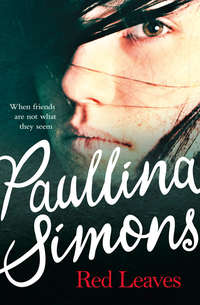
Полная версия
The Summer Garden
“What, and you’re not upset?” she said quietly.
“I’m not bothering you, am I?”
They lay by each other. He unzipped the bag halfway on his side and sat up. After opening the tent flaps for some air, he lit a cigarette. It was cold in the Canyon at night. Shivering, she watched him, considering her options, assessing the various permutations and combinations, factoring in the X-factor, envisioning several moves ahead, and then her hand crept up and lay on his thigh. “Tell me the truth,” Tatiana said carefully. “Tell me here and now, the years without me … in the penal battalion … in the Byelorussian villages—were you really without a woman like you told me or was that a lie?”
Alexander smoked. “It was not a lie, but I didn’t have much choice, did I? You know where I was—in Tikhvin, in prison, at the front with men. I wasn’t in New York dancing with my hair down with men full of live ammo.”
“My hair was never down, first of all,” she said, unprovoked, “but you told me that once, in Lublin, you did have a choice.”
“Yes,” he said. “I came close with the girl in Poland.”
Tatiana waited, listened. Alexander continued, “And then after we were captured, I was in POW camps and Colditz with your brother, and then Sachsenhausen—without him. First fighting with men, then guarded by men, beaten by men, interrogated by men, shot at by men, tattooed by men. Few women in that world.” He shuddered.
“But … some women?”
“Some women, yes.”
“Did you … taint yourself with a Gulag wife?”
“Don’t be absurd, Tatiana,” Alexander said, low and heavy. “Don’t divide my words by your false questions. You know what I said to you has nothing to do with that.”
“Then what did you mean? Tell me. I know nothing. Tell me where you went when you left me in Deer Isle for four days. Were you with a woman then?”
“Tatiana! God!”
“You’re not answering me.”
“No! For God’s sake! Did you see me when I came back? Enough of this already, you’re degrading me.”
“And you’re not degrading me by your worries?” she whispered.
“No! You believed I was dead. In New York you weren’t betraying me, you were continuing your merry widowed life. Big fucking difference, Tania.”
Hearing his tone, Tatiana moved away from the verbal parrying, though what she wanted to say was, “Obviously you don’t think it’s such a big difference.” But she knew when enough was enough with him. “Why won’t you tell me where you went in Maine?” she whispered. “Can’t you see how afraid I am?” She was upset he wasn’t willing to comfort her. He was never willing to comfort her.
“I don’t want to tell you,” Alexander said, “because I don’t want to upset you.”
Tatiana became so scared by his hollow voice that she actually changed the subject to other unmentionables. “What about my brother? Did he have a prison wife?”
Alexander smoked deeply. “I don’t want to talk about him.”
“Oh, great. So there’s nothing you want to talk about.”
“That’s right.”
“Well, good night then.” She swirled away. Really a symbolic gesture, swirling away, turning your narrow naked back to an enormous dressed man next to whom you’re still lying in one sleeping bag.
Alexander sighed into the smoke, inhaled it. With one arm, he flipped her back to him. “Don’t turn away from me when we’re like this,” he said. “If you must have an answer, a laundry girl in Colditz fell in love with Pasha and gave it to him for free.”
Tears came to Tatiana’s eyes. “Yes. He was very good at having girls fall in love with him,” she said quietly. She settled as close as she could into Alexander’s unwelcoming side. “Almost as good as you,” she whispered achingly.
Alexander didn’t say anything.
Tatiana tried hard to stop shivering. “In Luga, in Leningrad, Pasha was always in love with one girl or another.”
“I think he was mistaking love for something else,” said Alexander.
“Unlike you, Shura?” she whispered, desperately wishing for some intimacy from him.
“Unlike me,” was all he said.
She lay mutely. “Did you have yourself a little laundry girl?” Her voice trembled.
“You know I did. You want me to tell you about her?” Throwing his cigarette away, he leaned over her, putting his hand between her thighs. Just like that. No kissing, no stroking, no caressing, no whispering, no preamble, just the hand between her thighs. “She is maddening,” he said. “She is mystifying. She is bewildering, and infuriating.” His other hand went under her head, into her hair.
“She is true.” Tatiana tried to stay still. She was feeling not mystifying but sickly vulnerable at the moment—naked and small in complete blackness with his overwhelming clothed body, too strong for its own good, over her; with his heavy soldier hand on her most vulnerable place. She forgot her mission, which was to bring him comfort from the things that assailed him. “And she gives it to you for free,” she whispered, her hands grasping his jersey.
“You call this free?” he said. Miraculously his rough-tipped fingers were caressing her exceedingly gently. How did he do this? His hands could lift the Nomad if they had to, he had the strongest hands, and they weren’t always gentle with her, but they did tread ever so lightly in a place so sensitive it shamed her before his fingers made her senseless. “You don’t fool me, Tatiana, with your reverse questions,” he said. “I know exactly what you’re doing.”
“What am I doing?” she said thickly, trying not to move or moan.
“Turning it around to me. If I, an irredeemable sinner stayed clean, then you certainly did.”
“Obviously, darling, you are not irredeemable …” Her head angled back.
“One less wrong move by burly Jeb, and you would’ve given yourself to him,” said Alexander, pausing both in word and deed. The pause made Tatiana only less steady. “One more right move by Edward, one more forward move by Edward”—Tatiana couldn’t help it, she moved, she gasped—“and you would have given it to him for free.”
She was having trouble speaking. “That’s not true,” she said. “What, you think I couldn’t have?” She turned her face into his chest, her body stiff. “I could have. I knew what they wanted. But I …” She was having trouble thinking. “I didn’t.”
Alexander was breathing hard and said nothing.
“Is this why you are so detached from me?”
“What’s detached, Tania?”
It was ironic at the moment to accuse him of this. The soft rhythmic skates and slips of his fingers became too much for her; clutching him, she whispered inaudibly, wait, wait, but Alexander bent and sucked her nipple into his mouth, slightly increasing his pressure and friction on her, and she had no more inaudible wait, wait, but a very audible yes, yes.
When she could speak again, Tatiana said, “Come on, who are you talking to?” She pulled on his crew. “Look at me, Shura.”
“It’s dark, fire’s out, can’t see a thing.”
“Well, I can see you. You’re so bright, you’re burning my eyes. Now look at me. I’m your Tania. Ask me, ask me anything. I don’t lie to you.” She stopped speaking. I don’t lie to my husband. I do keep some things from my husband. Like: there are men coming up the hill again, coming after you, and I have to do everything in my power to protect you, and so I can’t comfort you as well as I would like to because at the moment I’m attacked in more ways than you know. “In Lazarevo,” she said, reaching for that comfort, for that truth he wanted, feeling for his face above her, “you broke my ring and I gave you my hand, and with it my word. It’s the only word that I keep.”
“Yes,” he whispered, his smoky breath beating to the tense drum of his heart. “I did break your ring once upon a time.” His fingers lightly remained on her. “But in New York you thought I was dead.”
“Yes, and I was mourning you. Perhaps in twenty years’ time I may have married the local liege, but I hadn’t. I wasn’t ready and I wasn’t happy and I wasn’t gay. Your son was in the bedroom. Though I may have danced a few times, you know better than anyone I did not forget my sweet love of youth,” she whispered, adding nearly inaudibly, “I left our little boy because I did not forget and could not forget.”
His apologetic palm was warm and comforting on her. Oh, so he was willing to comfort her.
“No apologies necessary,” she said. “You’re anxious, aren’t you? But I told you the truth back in Germany. I don’t lie to you. I won’t lie to you. I wasn’t touched, Shura. Not even in New York as your merry widow.” She moaned for him.
He was staring at her through the black night, tense, tight. Haltingly he whispered, “Kissed, Tatiana?”
“Never, darling Shura,” she replied, lying on her back, her arms around him. “Never by anyone but you. Why do you flagellate yourself over nothing?”
They kissed raptly, tenderly, openly, softly. “Well, look at the idiotic questions you keep asking me,” he said, throwing off his crew and his long johns like a large bristly hedgehog in a small sack. “Worrying about women in Byelorussia, in Bangor. It’s not nothing, is it? It’s everything.” He climbed on top of her in the unzipped sleeping bag. Her hands went above her head. His hands went over her wrists. His lips were on her.
“And finally,” Alexander said, after he was sated, and her palms were on his back, “there is a little blessed relief.”
The cigarette long stubbed out, she lay in his arms and he continued to caress her. Were they close to sleep? She thought he might be, his hands on her back were getting slower. But here at Yavapai, over the silent shrines of God’s fluvial Canyon carved centimeter by centimeter by a persistent and unyielding and course-changing Red River, was as good a time as any for Tatiana’s own slight erosion of the carapace that covered Alexander.
“Shura, why am I tainted with the Gulag?” she whispered. “Please tell me.”
“Oh, Tania. It’s not you. Don’t you understand? I’m soiled by the unsacred things I’ve seen, by the things I’ve lived through.”
She stroked his body, kissed his chest wounds. “You’re not soiled, darling,” she said. “You’re human and suffering and struggling … but your soul is untouched.”
“You think?”
“I know.”
“How do you know?”
“Because,” she whispered, “I see it. From the first moment I touched you on our bus, I saw your soul.” She pressed her lips to his shoulder. “Now tell me.”
“You won’t want to hear it.”
“I will. I do.”
Alexander told her about the gangrapes and the deaths on the trains. Tatiana almost said then that he had been right—she did not want to hear it. The savagery didn’t happen that often, he said; it didn’t need to in the camps. On the transport trains, these assaults and consequent deaths had been a daily occurrence. But at Catowice, Colditz, Sachsenhausen, most of the women either sold it, or bartered it, or gave it away free to strangers—quickly, before the guards came and beat them and then took some for themselves.
He told her about the women at Sachsenhausen. When Tatiana said she didn’t remember any women at Sachsenhausen, Alexander replied that by the time she came they had all gone. But before she came, the guards who hated Alexander put him in charge of building a brick wall to replace the barbed-wire fence that separated the women’s two barracks from the men’s sixteen. The guards knew it would put Alexander’s life in danger to build a wall to replace the existing barbed wire—which was so facilitating in the barter of sexual favors. The women backed up to the barbed wife on their hands and knees as if they were washing the floor, while the men kneeled on the ground, careful not to pierce themselves on the rusty protrusions.
Tatiana shivered.
So he built the wall. At five feet tall, it was not tall enough. At night the men skipped over the wall, and the women skipped over the wall. A watch tower was put up and a guard remained there round the clock to prevent connubial activity. The skipping over the wall continued. Alexander was told to make the wall seven feet. One afternoon during construction he was cornered in the barracks by eight angry lifers. They came to him with logging saws and axes. Alexander wasted no time talking. He swung the chain he was holding. It hit one of the men across the head, breaking open his skull. The other men fled.
Alexander finished the wall.
At seven feet, the wall was still not tall enough. One man would stand on another man’s shoulders and hop up onto it, then pull the standing man up. The prison guards electrified the top of the wall and put up another watch tower.
The men sustained some electrical shock damage to their bodies—but continued to climb over to get to the women on the other side.
Tatiana asked why the guards didn’t increase the electrical charge at the top of the barrier to instantly kill the man who touched it. Alexander replied they had to preserve their work force. They would have no one left to fill the logging quotas if they made the charge lethal. Also it took too much electricity. The guards had to light their own barracks. “At the commandant’s house, Karolich had to eat and sleep in comfort, didn’t he, Tatia?”
“He did, Shura. Not much comfort for him now.”
“The motherfucking bastard.”
Tatiana’s hand was on his heart. Her face was pressed into the muscles in his chest, into his Berlin shrapnel scar that was always under her mouth when she lay in his arms.
Alexander was told to build the wall to twelve feet.
One of his helpers said, “They were ready to maim you for a seven-foot wall. For a twelve-foot wall, they’ll kill you for sure.”
“Let them try,” said Alexander, never walking anywhere without the chain wrapped around his right hand. For extra protection he had attached nails to it in the metal shop. He had to use it again—twice.
The wall grew to twelve feet. And still the men climbed over. The electrical wire ran along the top. And still they climbed over. The barbed wire ran along the electrical wire. And still they climbed over.
Venereal diseases, fatal miscarriages, but worse, continuing pregnancies—the most incongruous thing of all—were making it impossible to run the prison. Finally the women were all put into trucks and carted a hundred kilometers east to the tungsten mines. Alexander found out there was a collapse of the mine during one of the explosions and all the women died.
The men stopped climbing over and began to get sick, to attempt suicidal escapes, to hang themselves with sheets, to fall down mine shafts, to cut each other’s throats in petty arguments. The production quotas were still going unfilled. The guards ordered Alexander to knock down the wall and start digging more mass graves.
He stopped speaking. Tatiana lay heavily by his side. She felt suddenly like she was two hundred pounds, not one hundred.
“During the years I’d been away from you, I used to dream of touching you,” Alexander said to Tatiana. “Your comfort is what I imagined. But during this period, all I saw was women being brutalized, and you, instead of staying sacred, diminished, and my thoughts of you became torture. You know how it goes—I lived oxen, so I dreamed oxen. And then you vanished altogether.” He paused, and nodded in the dark. “And that’s what I mean by tainted. And suddenly—after you fled me even in memories—I saw you in the woods, a vision of a phantom very young you. It wasn’t a dream. I saw you! Real like you are now. You were laughing, skipping, seraphic as always, except you had never sat on our bench in Leningrad, you had never worn your white dress the day Hitler invaded the Soviet Union. I had patrolled somewhere else, or you had gone somewhere else, and I had no one to cross the street for. And so in these woods, you were looking at me as if you had never known me, as if you had never loved me.” He broke off. “It was then that I began to attempt my own suicidal escapes, all seventeen of them. It was those eyes of yours that pursued me through Sachsenhausen,” said Alexander in a dead voice. “I may have felt nothing, but I could not live, could not last a minute on this earth believing you had felt nothing, too. Your meaningless eyes were the death of me.”
Tatiana was crying. “Oh, God … Shura, husband …” she whispered, her arms, her legs going around him. She climbed on top of him in the sleeping bag. She couldn’t hold him close enough to herself. “It was just a vile dream. My eyes are never meaningless.”
He stared at her, near her face. “Then why do you keep looking at me as if you’re missing something, Tania?”
She couldn’t return his pained gaze, even in the black of night. Taking a breath, she said, “I’m not missing anything. I’m just looking for you. Looking for you in the taiga woods. Looking for the Alexander I left behind a million miles away on the pine needle banks of Lazarevo, or in the critical care tent in Morozovo. That’s what I was thinking of at Mercy Hospital.”
That wasn’t the only thing she had been thinking at Mercy Hospital. Having called Esther that morning, she had found out just how determined, how grave, and how unrelenting Sam Gulotta remained. Her good sense was devoured by fear and she went missing and forgot to keep time. Tonight she swallowed and went on. “What could I do then that I can’t seem to do now? That’s what I think about. What can I do to bring you back? What can I do to make you happy? What can I do to help you? Where are you?”
Alexander fell quiet. He pulled her off him. She lay behind him, kissing him softly on a ridged scar over his spine, hearing his heart thunder out through his shoulder blades.
After a while he spoke. “You want to know where I was in Maine?”
“No.”
“I was trying to find that man.”
“Did you,” asked Tatiana in a faltering voice, putting her forehead on his back, “find him?”
“Obviously not,” Alexander replied. “I felt I had fucked it up, that it was all a bust. I didn’t know who I was. I too didn’t recognize the man who came back with you from Berlin. You had wanted the boy you met in 1941, the boy you loved, the boy you married. I couldn’t find him—but I couldn’t find you either behind your searching eyes. I saw other things there—worry for me, concern. The eyes of compassion you had for Colonel Moore, it’s true, you had in spades for me. But as you know, I didn’t want your pity eyes, your pity hands. The wall between us seemed a hundred feet, not twelve. I couldn’t take it. You had done so nicely for yourself while I had been gone and now I was damned and ruining it. The colonel and me, we both needed to be in that military hospital. He went, but there was no place for me. No place for me there, and not with you either. There was no place for me anywhere in this world,” said Alexander.
He had taken his weapons with him, and left her his money. Tatiana was breathing hard into her hands, trying to keep from completely breaking down. “I can’t believe you’re telling me this,” she said. “I can’t believe you’re saying these things out loud to me. I don’t deserve them.”
“I know,” Alexander said. “That’s why I didn’t tell you. Our son needed you. He has his whole life to set right. I thought you could still help him, save him.”
“Oh my God—but what about you?” Tatiana asked. “Shura, you desperately needed my help.” And still do, she wanted to add. She tried to wipe her face, but it was useless.
He turned to her, lay on his side in front of her. “I know.” He touched her eyes, her lips, her heart. “That’s why I came back,” whispered Alexander, his palm fanning her face. “Because I wanted to be saved, Tatiasha.”
Tatiana slept terribly, like she was being repeatedly hit in the throat with the butt of his rifle. They were hoping time would help them. A month here, a month there, a month without mosquitoes and snow, time was like fresh dirt on the shallow graves. Pretty soon the sound of the cannons might mute, the rocket launchers might stop whistling off the ground. Not yet though. On the run for the rest of our short, doomed lives. In other words, prison.
I wanted to be saved, Tatiasha.
“Nearer to thee,” he whispered to her last night before he fell asleep. “Even though it be a cross/that raiseth me.”
Up, up, up, on the run, unsaved, through Desolation Canyon, through the salt flats of Utah, through the Sunrise Peak Mountains, to where there was wine in the valley.
CHAPTER FOUR
Vianza, 1947
Bisol Brut Bobbing Bubbly
And was there ever wine in the valley.
Chardonnay, Cabernet, Merlot, Pinot Noir, Sauvignon Franc and Sauvignon Blanc. But sparkling wine was the most delicious of all, creamy, nutty, fruity, exploding with flavors of green apple and citrus, its bubble trapped in the bottle for maximum fizz and maximum joy.
It was the Italians that drew them in, the Sebastianis, running their tiny California winery on a foggy, winding, tree-canopied, hilly road nestled between other vineyards stretching from the Mayacamas Mountains to the east and the Sonomas to the west. The Sebastianis ran their winery as if they lived in Tuscany. Their yellow stucco Mediterranean house looked like something out of Alexander’s mother’s old country. Alexander could barely whoa the horse and drop the reins, before he was hired on the spot by Nick Sebastiani, who whisked Alexander away at four in the afternoon. It was late August and harvesting season, and the grapes had to come off the vine instantly or something terrible would happen to them, some overripening acidity. They had to be “cooled,” “threshed,” “separated from their skins,” “crushed in steel drums.” That’s what Nick told Alexander as Tatiana remained with Anthony in the unpaved parking lot, trying to figure out what to do next.
Holding his hand, she ambled over to the winery and said hello to Jean Sebastiani, and fifteen minutes later found herself not only drinking and admiring the unfamiliar but pleasant tastes, but accepting a job as a wine server for the outdoor patio area!
Tatiana muttered something about Anthony, and Jean said, “Oh, no, the boy can be your helper. We’ll get even more customers, you’ll see.”
People indeed loved the little helper—and were not entirely averse to the mother helper either. Tatiana continued to constrain herself in vests one size too small while her white limbs peeked out from her white sleeveless dresses as she hurried from table to table. While Alexander worked the fields picking acres of grapes, making seven bucks a day for his twelve hours of trouble, Tatiana was tipped like she was working for the emperors.
Short of quitting, there was nothing Alexander could do—there were too many men willing to work for even less. So Alexander continued to work like he worked and when Nick Sebastiani saw it, he gave him a raise to ten a day and put him in charge of twenty other migrant hand harvesters.
Temporarily they stayed in their camper near the barracks to use the shower facilities. Sebastiani wanted Alexander to live in the barracks with the rest of the workers. Alexander refused. “I’m not staying in the barracks with my family, Tania. What is this, Sachsenhausen? Are you going to be my little labor camp wife?”
“If you wish.”
They went off site to live, renting a room on a second floor of a bed and breakfast two miles down the road. The room was expensive—five dollars a day—but very large. It had a bed the size of which they’d never seen before. Alexander called it a brothel bed, for who else would need a bed this size? He would have been happy with a Deer Isle twin bed, it had been so long since they’d slept in one. Anthony had his own rollaway in the far corner. There was a bath with a shower down the hall, and the dining room downstairs served them breakfast and dinner so Tatiana didn’t have to cook. Alexander and Tatiana both didn’t love that part.








